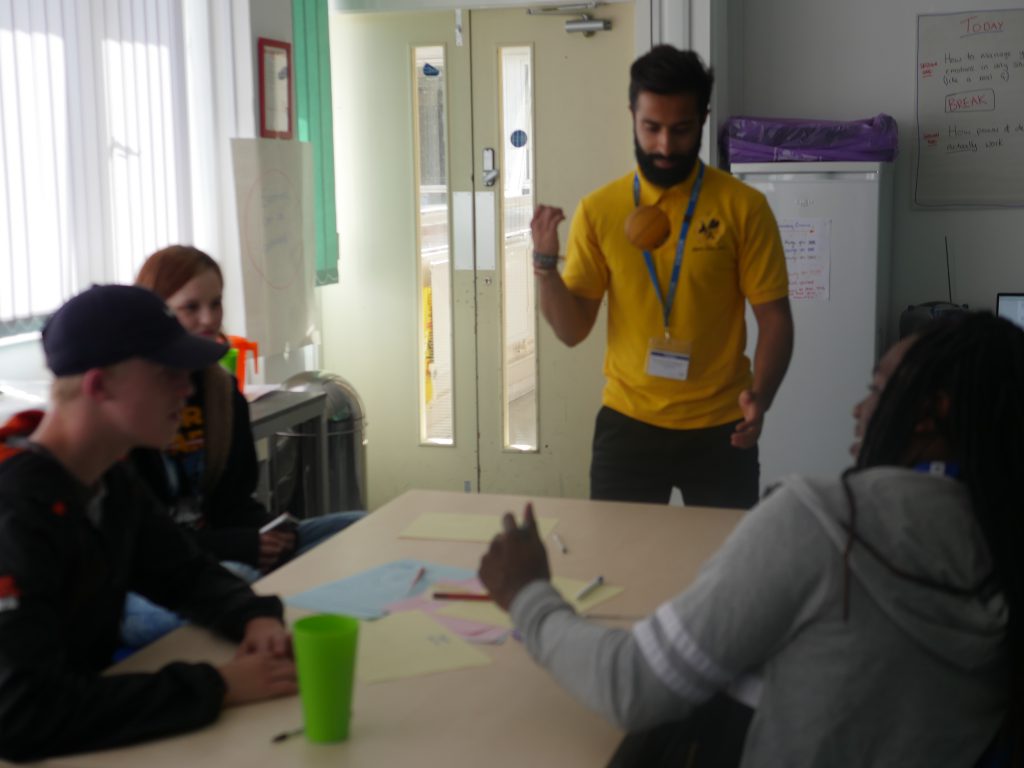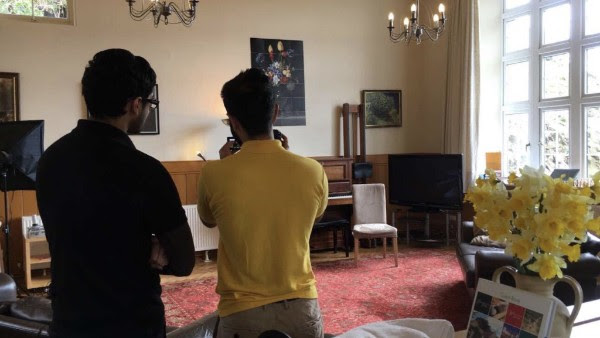Revolution hive: Empowering a generation of social reformers
Revolution Hive are filling in the gaps of our current education system by empowering young generations to become social reformers.
By Samy Felice
Revolution Hive’s mission is simple yet vast in its scope: empower a young generation to become social reformers. At the outset of our interview, Keshav, the founder, appears relaxed, unassuming and focused. He seems like a man with a passion for creating change – in a world where he feels the youth are falling behind.
To Keshav, formal education doesn’t do enough to equip young people for life beyond the classroom. He explains: “Students need motivation and the information required to lead ambitious lives that create a difference in the world”. In his lectures, he frequently cites the Prince’s Trust Youth Index (2014), which found that “more than three-quarters of a million young people in the UK feel like they have nothing to live for”.
“Revolution Hive’s mission is simple yet vast in its scope: empower a young generation to become social reformers.”
Revolution Hive is built on the premise of creating five key skills in young people: social awareness, self-awareness, empathy, lateral thinking and action orientation. When asked why he felt his project was more than just giving children workshops, he speaks about the impact his organisation has already had: “Many students have used the knowledge they gained to create important campaigns and take action based on what they learnt. They’ve become more empowered young individuals”.

Keshav’s organisation recently completed the Young Foundation’s Young Academy programme, which supports early-stage enterprises that work towards tackling educational inequality for young people in England. Revolution Hive is also an alumni of the New Philanthropy Network, a charity think-tank and consultancy that helps measure impact. Based on a study supported by the New Philanthropy network, “82% of participants at Revolution Hive’s leadership skills course for NCS The Challenge, a three part skill-based programme for 15-17 years olds, became more motivated to invest in their self-education”.
In determining how his workshops facilitate change, Keshav focuses on the organisation’s ‘RAPID’ educational methodology, which allows students to recognise the scope of topics in relevance to their daily lives. The model stands for: Recognise, Appreciate, Probe, Intend, and Do.
- Recognition starts with raising awareness of real world issues.
- Appreciation is about studying the critical matters that face our generation.
- Probe refers to using critical thinking skills to challenge sources of assumptions.
- Intention speaks to accepting responsibility and setting intentions for change.
- Do represents improved behaviours and dialogues.
In addition to this methodology, Revolution Hive’s curriculum and programmes are based on content sourced by leading experts, with all their work continually reviewed by an advisory board. Their educational style is about questioning and not preaching: relating back to the real world whilst attempting to make learning fun.
“Revolution Hive is built on the premise of creating five key skills in young people: social awareness, self-awareness, empathy, lateral thinking and action orientation.”

Topics covered by Revolution Hive include the power of media, gender, race, climate change, confidence, politics, mental health, the global food industry, nutrition, finance and digital leadership – all of which can go left unnoticed to varying degrees in today’s modern education system.
Even with all these efforts, Keshav realises that his bid to make a difference in the lives of the youth needs to go beyond the classroom. “We realise that more and more young people are getting fed information through the internet. It’s only right that we try to replicate what we’re doing in schools, through online videos. “Based on a survey done in 2017, the organisation’s YouTube Channel encouraged 92% of viewers to question their beliefs and think outside the box”.
In 2014, Keshav gave a TEDx talk titled “Be A Better Student, Go Beyond The Curriculum”, which has been viewed more than 65,000 times. The talk asks why students need to go beyond the formal education they receive if they want to be social reformers . He values “individuals who inhale the right information, and exhale positive actions in the world”.
“We try to make life more serious than it is, but what if it was just a playground?”
Bridging his desire to create change in the world, whilst having the peace of mind to realise that it won’t always turn out the way he hopes is something that he’s learnt to accept. “We try to make life more serious than it is, but what if it was just a playground?” he asks me. Questioning assumptions about the way we perceive our reality is one of his strengths, and it allows him to approach his work with a sense of love, more so than a desire to make a particular outcome materialise.

With such an ambitious project aimed at young people, “Kesh”, as he’s known to his friends, understands that patience is a worthwhile value. “Look at Alan Watts, the british philosopher, writer, and speaker ,” he says, ‘his speeches and books barely got noticed when he first published them… they’re now spreading virally across social media”.
Despite his patience, Keshav is equally aware of the need to make as much of a statement as he can through his work. Malcolm X is one of his inspirations. He quotes his hero: “I had learned that if you want something, you had better make some noise”. With time, Keshav hopes that his organisation’s unique educational approach will impact more and more young people to lead socially-conscious and empowered lives. Without hesitation, he lets me know that: “What we do for ourselves lasts a lifetime but what we do for others lives forever”.
Revolution Hive is currently looking for teachers and schools who might be interested in partnering with them.

